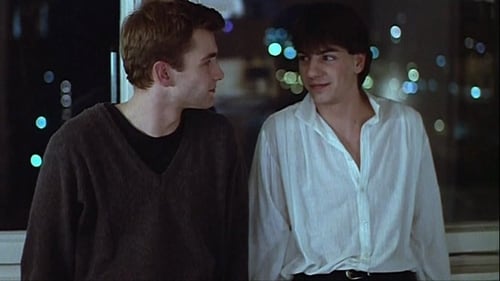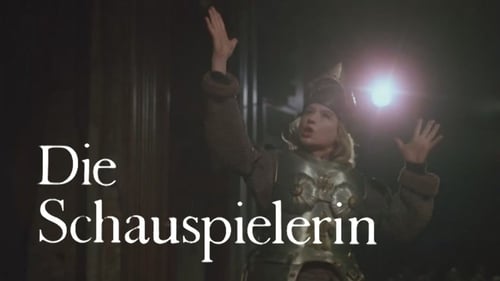
Music
Through all the years, someone was watching over him but he never knew.

Music
1993 drama film.

Music
It is 1988. Jacob (Gottfried John), from Hamburg in West Germany, falls in love with Elisabeth (Angelica Domröse) in East Germany. When they secretly meet in East Berlin, it seems the Stasi (secret police) knows about it. When Jacob visits her village, someone informs on him and he is deported. Elisabeth knows who begrudges her this love and takes her revenge. Critics note that in this film, director Heiner Carow revisits the themes of his 1972 smash hit, The Legend of Paul and Paula, which became a cult film throughout Germany.

Original Music Composer
Фильм о молодом парне - учителе, осознавшем свою гомосексуальность, пытавшемся из-за этого покончить с собой, впоследствии переосмыслившем свое отношение к жизни, пытающемся взять от нее все радости «голубой» жизни и, даже, узнавшего любовь. Любовь оказалась безответной. Но жизнь продолжается. И в ней бывают и радости, и огорчения.

Music
Everyone dreams of a horse - and especially four Kulman family children...

Music
The year 1933: Successful actress Maria Rheine is in love with her Jewish colleague Mark Löwenthal. When the Nazis implement the racist Nuremberg Laws, their relationship is severely endangered. Defiant Maria decides to stay together with Mark and ends her promising career: She assumes a Jewish identity and continues to work under the name Manja Löwenthal. She and Mark perform at the Jewish Theatre in Berlin, until they become victims of an intrigue: Their colleague Judith, who has a crush on Mark, denounces them to the secret police.

Music
Karin, a well-known and loved midwife in her early forties, receives a high-order decoration from the state. While still overwhelmed with happiness about this honor, she is faced with a difficult decision when she encounters a young women who claims to be her daughter.

Music
Юная Гритта живет со своим отцом в полуразрушенном замке, где хозяйничают крысы, с которыми девочка наладила полное взаимопонимание. Однажды ее отец, механик Юлиус Ортель, получает заказ от самого короля на изготовление эвакуационного устройства для трона. Его величество очень опасается заговорщиков и желает в любой момент иметь возможность спастись бегством. Для неудачливого изобретателя это становится шансом изменить свою жизнь. К тому же, в Крысином замке появляется принцесса Анна Боллена, скрывающаяся от посягательств Первого Министра, желающего во что бы то ни стало видеть ее своей женой. Чтобы оградить себя от этих посягательств, девушка выходит замуж за вдового Юлиуса Ортеля. Гритте же приходится отправиться на воспитание в монастырь. Но там девочка узнает о заговоре против короля, и вместе с другими воспитанницами бежит из-под присмотра суровых монахинь. По дороге беглянки сталкиваются с ускользнувшим от внимания гувернанток сыном короля, юным принцем Бонусом…

Music
"This was my first student documentary. I shot it over the Easter vacation in 1980 on 16mm, black-and-white reversal film. Apart from two five-minute exercises, it was destined to be the only film I ever finished at the College of Film and Television of the German Democratic Republic (Hochschule für Film und Fernsehen der DDR, HFF) in East Germany’s Potsdam-Babelsberg. It was quickly banned from being shown publicly and it remained in storage until the end of 1989. The film tells the story of a mother and her sons having coffee and cake while they try to remember –in vain– when the first time was that they tangled with the police. The reason it was banned was the casual way the film portrayed those young men living their lives untouched by ideology, including taking their careers as petty criminals for granted, meaning the film’s author accepted their existence, as is, and simply wanted to explore it.”





